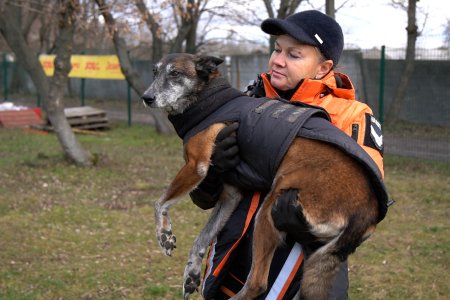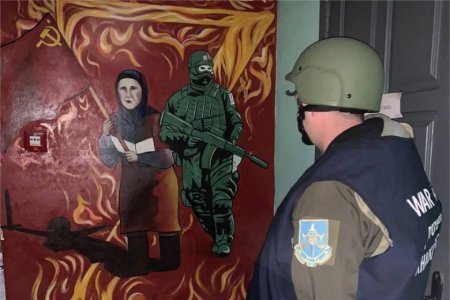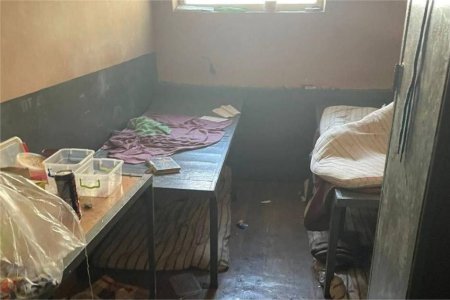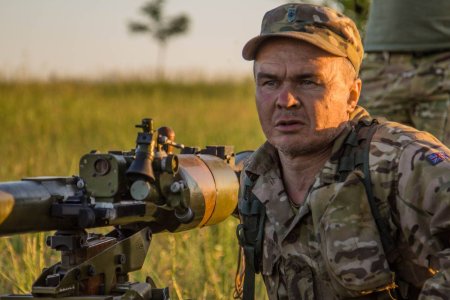I am Sokolova Iryna Viktorivna. On the first day of the war, I was driving home from work (from the night shift). My daughter called me and said: “Mom, hurry home, the war has started.” I didn’t believe it. I said: “What are you talking about? What kind of war?” She responded: “Yes, mom, we were attacked.” This is how I remember this day.
Where did you live?
I lived in the 17th microdistrict in the city of Mariupol.
Please tell us how events developed further and where you were all that time.
I was at home. On the 24th, it all started, and on the 26th, I still went to work because I worked as a crane operator on furnaces. The parts had to be calcined and removed from the ovens. And then the air raids began. I walked home. I called, they picked me up in a car, and I returned home.
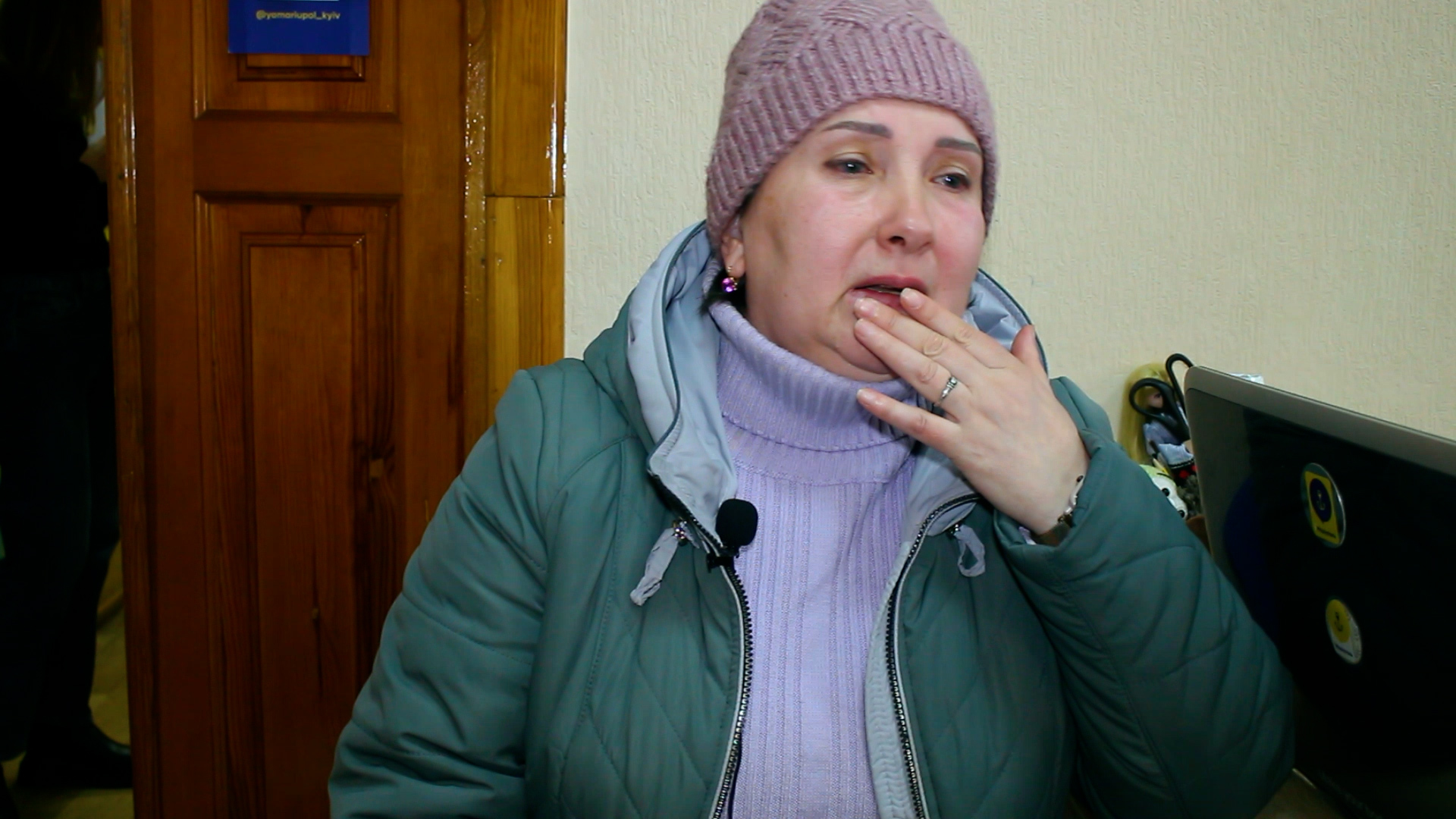
We were at home all that time. We looked out of the windows from the balcony. We saw them shooting on the outskirts. Exit to the Zaporizhzhia region is on the 17th microdistrict’s outskirts. On the one side, the house was destroyed, and the other was on fire. I couldn’t understand why from that side. There are ours there: Ukraine, Zaporizhzhia. We didn’t yet know that we had been encircled. This is how we lived: we watched — we hid and watched.
In March, when there was an air raid, we went down to the basement. There was no light, no heating. There was a school in our yard, and military personnel stayed there. They helped us charge our phones to keep some contact, but there was no connection with anyone. They provided us with some help and brought water. And they brought food to the children. Good people!
In March, it seems, on the 19th, there was an air raid — as always in the morning. Our house was shaking. And it was terrifying. We ran to the basement. We were there for three days, probably. And then Russian soldiers came in. We were taken from the basement to the hospital. My daughter said: “Mom, we need to do something; we need to leave somehow.” How? No car, no nothing. Many did not leave in their cars; we heard they were shot. Civilians were shot. But we had no choice — we had to get out somehow.
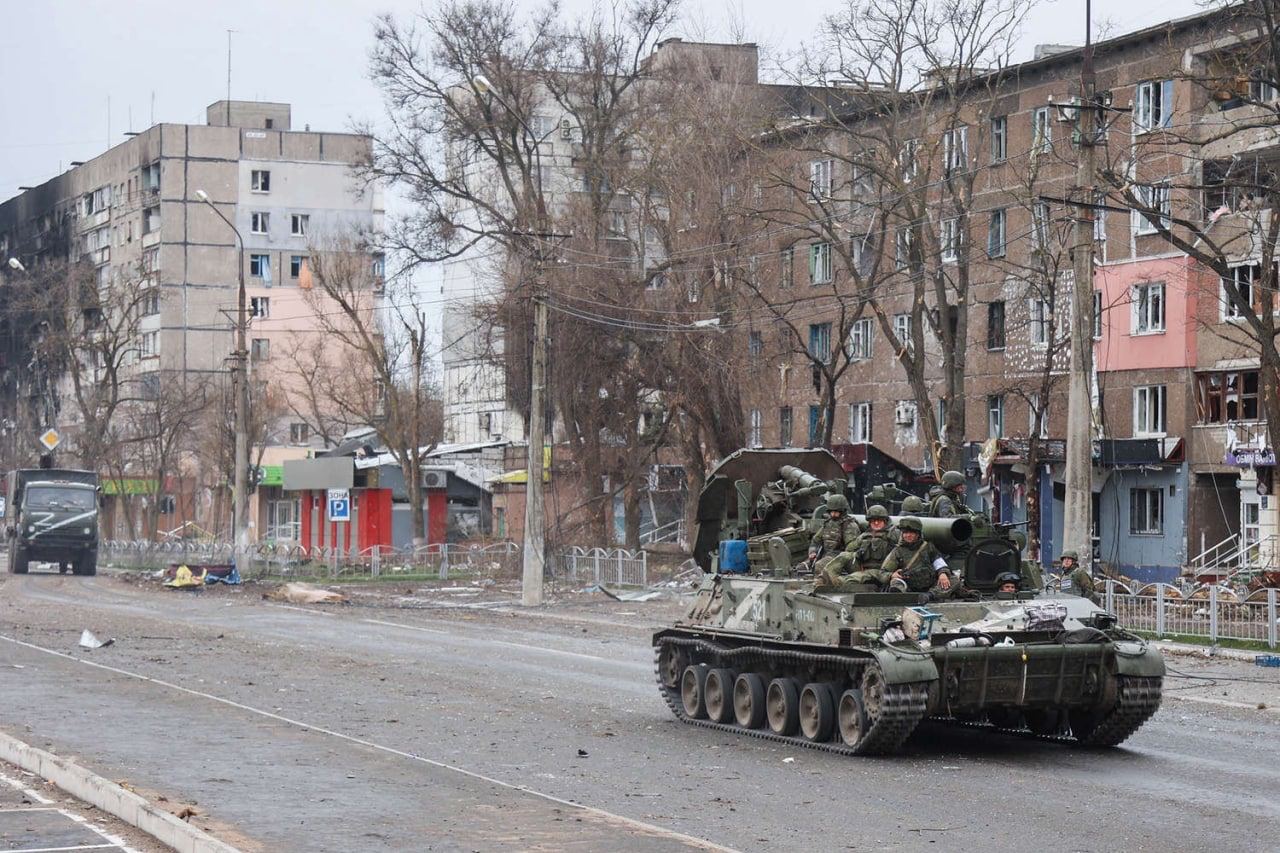
Finally, the bus arrived for those who wanted to travel specifically to the territory of Ukraine. They took us to Volodarsk (Nikolske). We were in Volodarsk for approximately three days. We thought about what to do next because Orikhiv and Polohy were already captured, and there were battles there (in fact, the Russians failed to capture Orikhiv — ed.), so we could not get to Zaporizhzhia. We only had to go through Berdiansk. But no buses or anything were going to Berdiansk. People grouped together and hired a private carrier. We heard that Ukrainian buses from Zaporizhzhia come to Berdiansk. We stopped in Berdiansk and signed up in line for these buses. There were a lot of people out there.
We were there for a week and were then informed that buses were no longer allowed into the city and they were being delayed somewhere. So we walked on foot to these Zaporizhzhia buses, which were waiting for us on the outskirts of Berdiansk. The column was huge—a lot of people, a lot of buses. Near Vasilyevka, the Russian military again did not let us through. They kept us for a day. Then, we went through the fields to Zaporizhzhia. This is how we got to Ukraine.
Please tell me, did you have contact with the Russian military? If yes, how did they treat you?
At each checkpoint, men between the ages of 18 and 50 were taken out. Women and girls were also taken out: they were undressed, and their necks, shoulders, and tattoos were checked. It happened at every checkpoint. However, there was no strong aggression. We were lucky, I guess.
Please tell me, have you witnessed war crimes, murders, or mass destruction? Could civilians standing in lines for water or food be hit?
I just saw how Mariupol was bombed and how our houses burned down — precisely civilian dwellings. We couldn’t understand why. What is all this for? Most often, everything happened at night or in the evening. There was still some respite during the day, although later, they bombed during the day. When we were sitting in the hospital, we heard the echo of war. The Russians were already entering the center of Mariupol.
